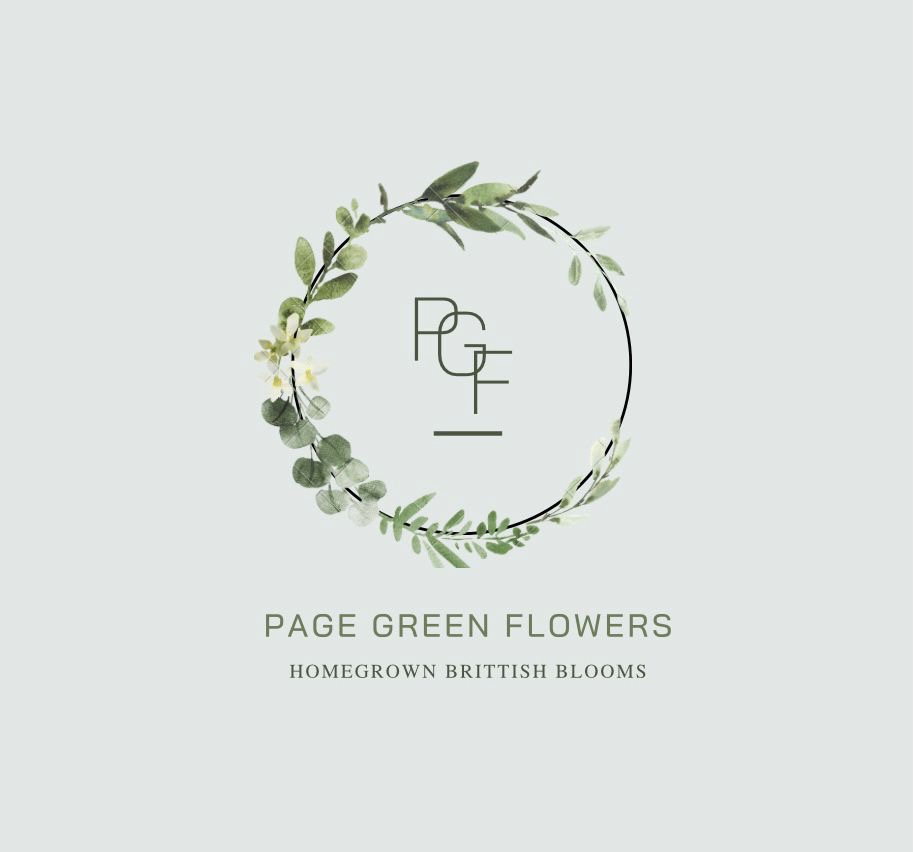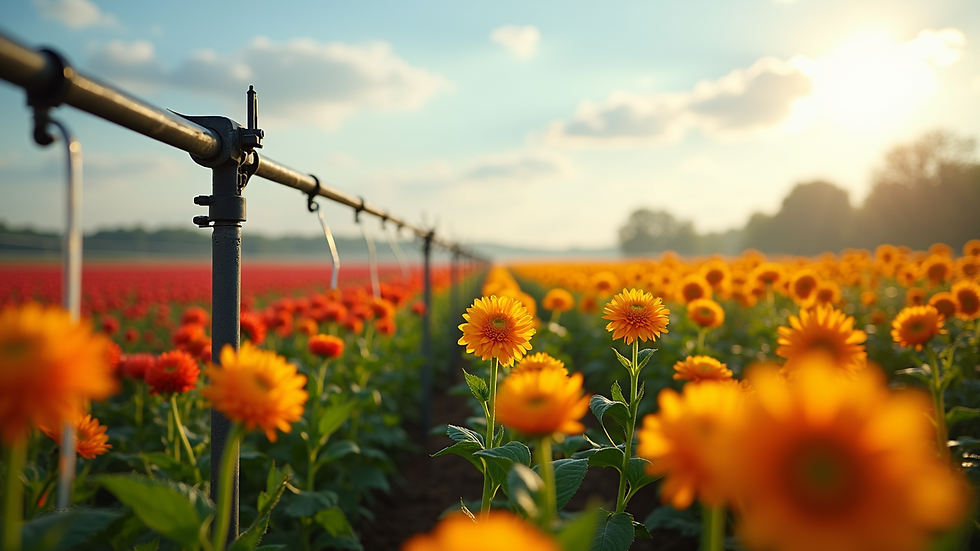Sustainable Flower Farming in the UK
- michelegreen0109

- Aug 9, 2025
- 3 min read
The UK flower industry is blossoming with a fresh focus on sustainability and environmental care. As awareness grows about the impact of traditional farming methods, many growers are turning to eco-friendly floral farming practices. These methods not only protect the environment but also ensure the longevity and health of flower crops. This shift is especially celebrated during British Flower Week, a time dedicated to promoting local blooms and sustainable growing.
The Rise of Eco-Friendly Floral Farming in the UK
Eco-friendly floral farming is about more than just growing flowers; it’s about nurturing the land and reducing environmental harm. UK growers are adopting techniques that conserve water, improve soil health, and reduce chemical use. For example, many farms now use rainwater harvesting systems to irrigate their crops, cutting down on mains water consumption. Others incorporate companion planting, where certain plants are grown together to naturally deter pests and improve growth.
One practical step is the use of organic fertilizers and natural pest control methods. Instead of synthetic chemicals, farmers might use neem oil or introduce beneficial insects like ladybirds to manage aphids. These approaches help maintain biodiversity and protect pollinators, which are vital for flower production.

Practical Techniques for Sustainable Flower Farming
Implementing sustainable flower farming practices requires a combination of knowledge, planning, and commitment. Here are some actionable recommendations for growers interested in eco-friendly floral farming:
Soil Management
Healthy soil is the foundation of any successful flower farm. Regularly adding organic matter such as compost improves soil structure and fertility. Crop rotation and cover cropping can prevent soil depletion and reduce weed growth.
Water Conservation
Drip irrigation systems deliver water directly to the roots, minimizing waste. Mulching around plants helps retain moisture and suppress weeds, reducing the need for frequent watering.
Energy Efficiency
Using renewable energy sources like solar panels for greenhouses and farm operations lowers carbon footprints. Efficient lighting and ventilation systems also contribute to energy savings.
Waste Reduction
Composting plant waste and recycling packaging materials reduce landfill contributions. Some farms even create on-site composting areas to turn floral waste into valuable soil amendments.
Supporting Pollinators
Planting wildflower strips and maintaining hedgerows provide habitats for bees, butterflies, and other pollinators. Avoiding pesticides that harm these insects is crucial.
By integrating these techniques, flower farms can thrive while protecting the environment and supporting local ecosystems.

Celebrating British Flower Week: Promoting Local and Sustainable Blooms
British Flower Week is an annual event that highlights the beauty and importance of locally grown flowers. It encourages consumers to choose British blooms, which often have a smaller carbon footprint compared to imported flowers. The week also raises awareness about the benefits of sustainable flower farming and supports growers who adopt eco-friendly practices.
During this week, many farms open their gates for tours, workshops, and flower arranging demonstrations. These activities educate the public on how flowers are grown sustainably and inspire more people to buy local. Retailers and florists also participate by showcasing British flowers and promoting seasonal varieties.
Supporting British Flower Week means supporting a greener future for the flower industry. It helps build a market for sustainably grown flowers and encourages innovation in eco-friendly floral farming.

The Benefits of Sustainable Flower Farming for the Environment and Economy
Adopting sustainable flower farming practices offers numerous advantages beyond environmental protection. Economically, it can reduce input costs by lowering the need for expensive chemicals and water. Healthier soils and plants often lead to better yields and higher-quality flowers, which can command premium prices.
Environmentally, sustainable farms contribute to biodiversity by providing habitats for wildlife. They reduce pollution from pesticides and fertilizers, helping to keep waterways clean. By focusing on local production, these farms also cut down on transportation emissions.
Consumers increasingly value sustainability, and buying flowers from eco-friendly farms aligns with this trend. This creates a positive feedback loop where demand encourages more growers to adopt sustainable methods.
How to Support Sustainable Flower Farming in the UK
Whether you are a consumer, retailer, or grower, there are many ways to support sustainable flower farming in the UK:
Buy Local and Seasonal: Choose flowers grown in the UK during their natural season to reduce environmental impact.
Look for Certifications: Some farms have eco-labels or certifications that verify their sustainable practices.
Educate Yourself and Others: Learn about the benefits of sustainable flower farming and share this knowledge.
Visit Flower Farms: Attend events like British Flower Week to connect with growers and see sustainable farming in action.
Choose Eco-Friendly Florists: Support florists who source from sustainable farms and use environmentally friendly packaging.
For those interested in learning more about sustainable flower farming, Page Green Flowers offers valuable resources and examples of best practices.
By making informed choices, everyone can contribute to a more sustainable and beautiful floral industry in the UK.







Comments